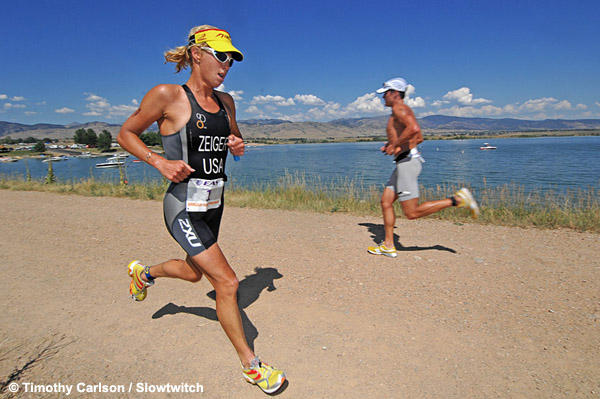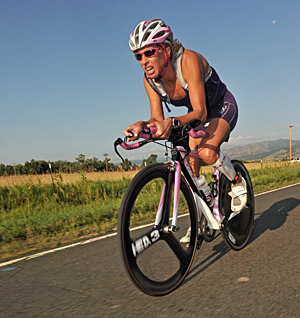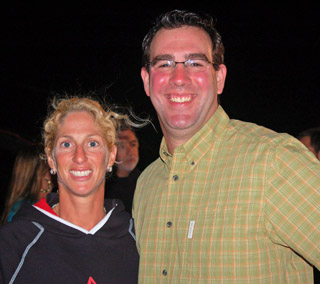Joanna Zeiger On Life After Tri
I admit it. I lurk on the Slowtwitch forum. Phew. I am glad I got that off my chest. Of course, there are threads on training, race predictions, crashes, doping, and my favorite is anything dealing with who’s hot. Ok, maybe not so much the last one.
A common theme I’ve seen over the years is about athletes struggling with injuries and how these injuries affect their ability to keep training and racing in the sport of triathlon. Most often running is the sport that suffers, but there are people like me who have left the sport due to an inability to bike and swim (more on that later). Universally, athletes who cannot race triathlons any longer are naturally despondent and look for any way possible to make their return, even if it means engaging in strange voodoo or tribal rituals.
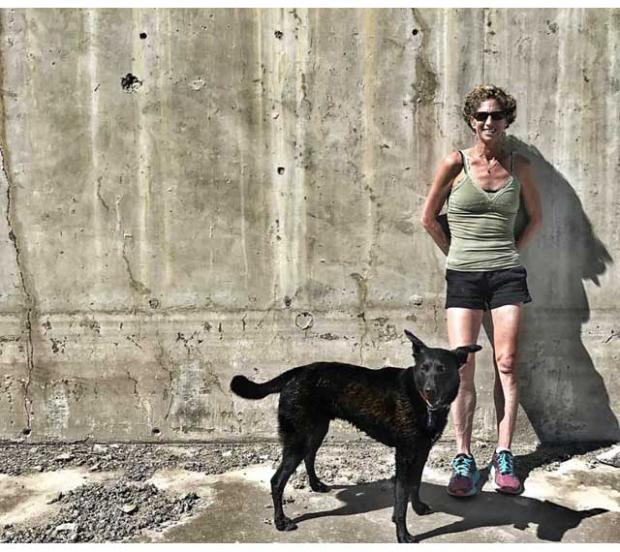
I suppose the reason these threads capture my attention is because I left the sport of triathlon due to injuries that render me unable to bike or swim; somehow, I can still run. I won’t bore you with all of the details of the bike accident that caused my retirement from triathlon, but the short version is that I severely battered my right rib cage with injuries ranging from broken ribs that never healed, a fractured and displaced xiphoid process (the bone at the tip of the sternum), torn intercostal muscles, and intercostal nerves that were stretched beyond their limits and are therefore permanently damaged. It has been 7 years since my last triathlon. I still miss it sometimes, the yearning to compete manifested in Ironman dreams.
This article is meant to focus on those who have exhausted all of their options and are precluded from participating in one or more of triathlon’s three sports and therefore triathlon itself. For those still searching for answers, I hope you can find them. Here is a hint, the best place to start is by getting a proper diagnosis. This may seem obvious, but you’d surprised how many athletes are misdiagnosed or do not have a diagnosis at all (a Google diagnosis does not count. Please see a medical professional).
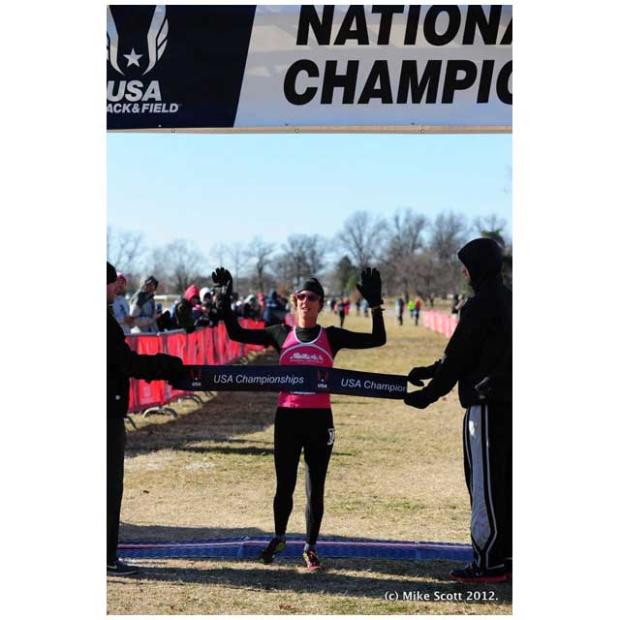
A common theme I have seen among waylaid athletes is something I also see in the chronic pain community and that is an overarching focus on activities that can no longer be accomplished rather than appreciating what can still be undertaken. Ruminating on past heroics and lamenting today’s disabilities will never be satisfying and will eventually lead to a path of resentment and/or depression. In a matter of an instant I went from a world beater in triathlon to a chronic pain patient. I look back on the past with nostalgia and fondness, but instead of trying to compare my present-self to my past-self, I arm myself with new goals compatible with my current level of ability. Reaching this point is step 1: acceptance and readjustment.
Positivity goes a long way as you adjust to your new-self. Biking used to be an integral part of my life, socially and athletically. Long rides along the Colorado Front Range or up into the picturesque mountains was my version of a spiritual experience. Letting it go wasn’t easy until I understood all of the positives. Just in case you can’t think of any positives about never riding a bike again, here is a nice list: reduced risk, less laundry, more time to spend with family, more energy, no saddle sores, and I don’t have to try to choke down gels and other sugary, stomach-upsetting sports nutrition. That’s a pretty good list. I suggest you make your own list of positives. This is step 2: fleshing out the positives of not being able to do your sport.
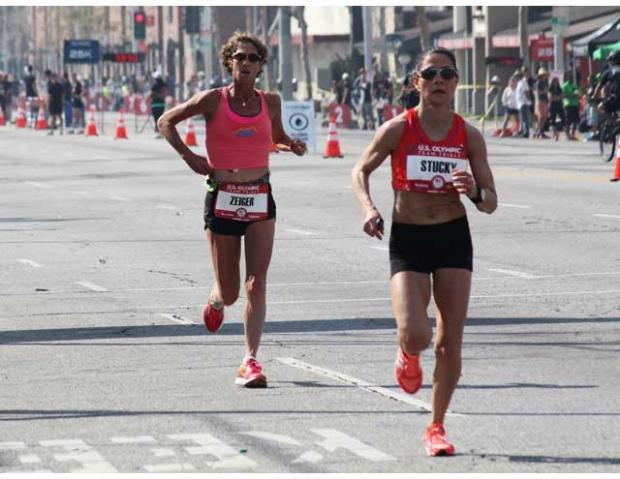
Triathletes are very good at swim, bike, run and not infrequently suck at everything else sports-wise. Or, maybe that is just me projecting my own shortcomings when it comes to other sports. Despite our narrow athletic views, if you can no longer swim or bike or run, it is time to find new challenges. The world of sports is large if you open your mind. When I retired from triathlon in 2010, it didn’t take me long to find new challenges. Granted, my athletic focus is still grounded in one of triathlon’s sports, but that is out of necessity rather than narrowmindedness; my injuries are quite limiting. I chose to pursue cross country running. I never ran cross country until I turned 40. I dappled in some masters races, with mixed success ranging from winning a National Championship to dropping out of a race due to rib pain. I actually HATE cross country, but I will run at least one more Masters National Championship when the esteemed Colleen DeReuck turns 70, because that is the pact we made a few years ago in a moment of inspiration. This is step 3: find new challenges.
Once you’ve found your peace, placate it by not complaining about your situation or craning your neck looking back at the past too often. Focus on the now and figure out what makes your body feel the best. Do not beat yourself up trying to resurrect something that cannot be resurrected. One time since my retirement I tried to ride a bike; I commuted to a race to volunteer. The ride home, all of 3 miles, was such a disaster I nearly threw the bike into a ditch. Once you’ve made the decision that a particular sport is not achievable, do not constantly “test” it out (this goes to point 1, acceptance).
Triathlon is more than a sport, it is a lifestyle. I never imagined a day when I wouldn’t be part of triathlon. I do not race triathlons anymore, but I am still part of the sport as a coach, mentor, author, and race volunteer. Remember this, while you may not be able to compete, you can still participate.
Joanna Zeiger, MS, PhD, raced as a professional triathlete from 1998-2010. She placed 4th in the triathlon at the 2000 Sydney Olympics and won the 2008 Ironman 70.3 World Championships. She is a seven time Olympic trials qualifier in 3 sports – marathon, triathlon and swimming. Joanna still pursues her passion for sports as a top Masters runner. Through her company, Race Ready Coaching, Joanna trains endurance athletes to reach their personal best and instills in them the importance of having fun even when they are training hard. When she is not coaching or training for running events, Joanna works as a consultant in the field of biostatistics. Joanna’s education took her to Brown University, Northwestern University, and Johns Hopkins Bloomberg School of Public Health. Joanna’s book The Champion Mindset: An Athlete’s Guide to Mental Toughness (St. Martin’s Press) was published in February, 2017.
[Publisher's note: Joanna well knows there are plenty of events that accommodate anyone's particular injury if you just look deep enough on the calendar!]


